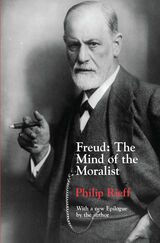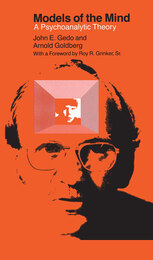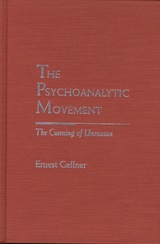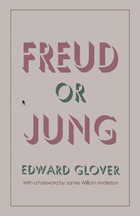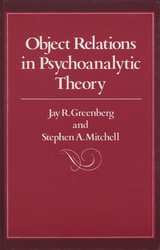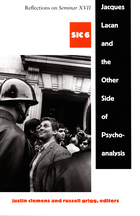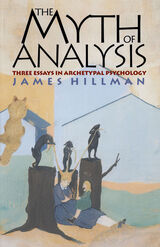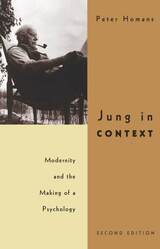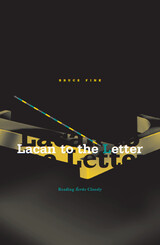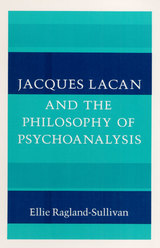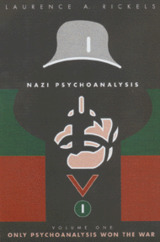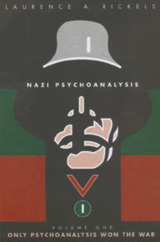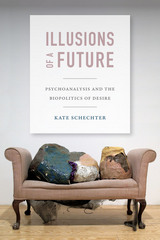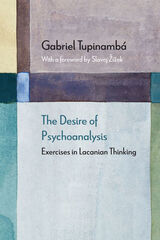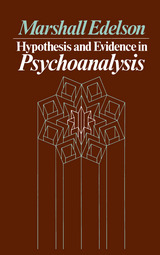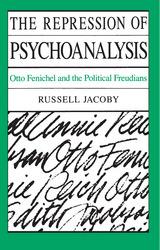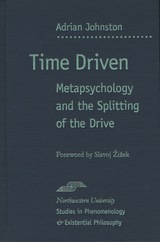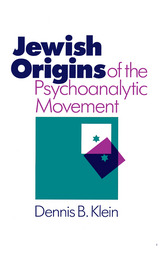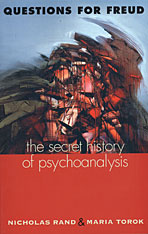Nazi Psychoanalysis V1: Volume I: Only Psychoanalysis Won the War
University of Minnesota Press, 2002
Cloth: 978-0-8166-3696-9 | Paper: 978-0-8166-3697-6
Library of Congress Classification BF173.R49 2002
Dewey Decimal Classification 150.1950943
Cloth: 978-0-8166-3696-9 | Paper: 978-0-8166-3697-6
Library of Congress Classification BF173.R49 2002
Dewey Decimal Classification 150.1950943
ABOUT THIS BOOK
ABOUT THIS BOOK
Volume I: Only Psychoanalysis Won the War
Volume II: Crypto-Fetishism
Volume III: Psy Fi
Laurence A. Rickels
Foreword by Benjamin Bennett
A revolutionary new approach to the place of Nazi ideology in twentieth-century thought.
Psychoanalysis was a symptom of everything the Nazis reviled: an intellectual assault on Kultur largely perpetrated by Jews. It was also, as this remarkable revisionary work shows, an inescapable symptom of modernity, practiced, transformed, and perpetuated by and within the Nazi regime. A sweeping, magisterial work by one of the most incisive and interesting scholars of modern philosophy, theory, and culture, Nazi Psychoanalysis studies the breadth of this phenomenon in order to clarify and deepen our understanding not only of psychoanalysis but of the twentieth century itself.
Tracing the intersections of psychoanalysis and Nazism, Laurence A. Rickels discovers startling conjunctions and continuities in writers as diverse as Adler and Adorno, Kafka and Goethe, Lacan, H. Rider Haggard, and Heidegger, and in works as different as Der Golem, Civilization and Its Discontents, Frankenstein, Faust, and Brave New World. In a richly allusive style, he writes of psychoanalysis in multifarious incarnations, of the concept and actual history of "insurance," of propaganda in theory and practice, of psychological warfare, Walt Disney, and the Frankfurt School debates-a dizzying tour of the twentieth century that helps us see how the "corridor wars" that arise in the course of theoretical, clinical, social, political, and cultural attempts to describe the human psyche are related to the world wars of the century in an intimate and infinitely complicated manner.
Though some have used its appropriation by the Nazis to brand psychoanalysis with the political odium of fascism, Rickels instead finds an uncanny convergence-one that suggests far-reaching possibilities for both psychoanalysis and psychoanalytic criticism. His work, with its enormous intellectual and historical span, makes a persuasive argument that no element of modernity-not psychoanalysis any more than Marxism or deconstruction, cultural revolutions or technological advances-can be adequately understood without a thorough consideration of its Nazi component.
Laurence A. Rickels is professor of German and comparative literature at the University of California at Santa Barbara. His books include The Vampire Lectures (1999), The Case of California (2001), and the edited volume Acting Out in Groups (1999).
Volume II: Crypto-Fetishism
Volume III: Psy Fi
Laurence A. Rickels
Foreword by Benjamin Bennett
A revolutionary new approach to the place of Nazi ideology in twentieth-century thought.
Psychoanalysis was a symptom of everything the Nazis reviled: an intellectual assault on Kultur largely perpetrated by Jews. It was also, as this remarkable revisionary work shows, an inescapable symptom of modernity, practiced, transformed, and perpetuated by and within the Nazi regime. A sweeping, magisterial work by one of the most incisive and interesting scholars of modern philosophy, theory, and culture, Nazi Psychoanalysis studies the breadth of this phenomenon in order to clarify and deepen our understanding not only of psychoanalysis but of the twentieth century itself.
Tracing the intersections of psychoanalysis and Nazism, Laurence A. Rickels discovers startling conjunctions and continuities in writers as diverse as Adler and Adorno, Kafka and Goethe, Lacan, H. Rider Haggard, and Heidegger, and in works as different as Der Golem, Civilization and Its Discontents, Frankenstein, Faust, and Brave New World. In a richly allusive style, he writes of psychoanalysis in multifarious incarnations, of the concept and actual history of "insurance," of propaganda in theory and practice, of psychological warfare, Walt Disney, and the Frankfurt School debates-a dizzying tour of the twentieth century that helps us see how the "corridor wars" that arise in the course of theoretical, clinical, social, political, and cultural attempts to describe the human psyche are related to the world wars of the century in an intimate and infinitely complicated manner.
Though some have used its appropriation by the Nazis to brand psychoanalysis with the political odium of fascism, Rickels instead finds an uncanny convergence-one that suggests far-reaching possibilities for both psychoanalysis and psychoanalytic criticism. His work, with its enormous intellectual and historical span, makes a persuasive argument that no element of modernity-not psychoanalysis any more than Marxism or deconstruction, cultural revolutions or technological advances-can be adequately understood without a thorough consideration of its Nazi component.
Laurence A. Rickels is professor of German and comparative literature at the University of California at Santa Barbara. His books include The Vampire Lectures (1999), The Case of California (2001), and the edited volume Acting Out in Groups (1999).
See other books on: Psychoanalysis | Psychotherapy | Rickels, Laurence A. | Volume | War
See other titles from University of Minnesota Press

